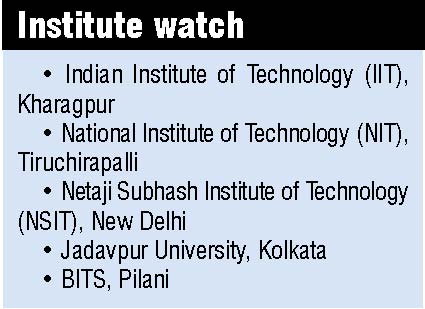Instrumentation deals with measurement of various physical quantities like temperature, pressure, level, flow, speed, sound, light intensity and control of the same in various industries. An instrumentation engineer is invariably required where there is an engineering activity.
— Prof. R.D. Kokate, head of Department of Instrumentation Engineering
[/stextbox]
The ability to work with good ethics and human values and strong interpersonal skills are must to have. Agarwal defines the application areas as engineering design, industrial process plants, power production, pet rochemical processing, oil extraction and gas refining, fertiliser industry, software automation of industrial plants, instrument manufacturing and automobile assembly line control.
The main metric is grip on control. And as a professional, you are expected to acquire the knowledge and skills needed to design a practical control loop as per that metric. If you can achieve it, instrumentation and maintenance related issues will automatically be on your fingertips.
as a professional, you are expected to acquire the knowledge and skills needed to design a practical control loop as per that metric. If you can achieve it, instrumentation and maintenance related issues will automatically be on your fingertips.
[stextbox id=”info”]
“Instrumentation plays a very important role in power electronics segment. An aspirant in this field needs to have clear idea about features like feedback, control and communication.”
— R.K. Bansal, managing director, Uniline
MGM’s Jawaharlal Nehru Engineering College
[/stextbox]
To make maximum use of the situation, you need to have expertise to survive in the globally competitive environment of automation.
Know the final bend
As is always the case, the earlier, the better. Academically, the right time to acquaint yourself with this multidisciplinary field of electronics is when you are in the second or third year of engineering. Try to utilise your industrial training or final-year project for the same.
Mittal points out, “An aspirant of this field can get holistic overview of ‘chip to ship’ of a control loop and instrumentation only after completing a project. Nearly all of our institutes, barring a handful, are woefully lagging in terms of providing students with such opportunities.”
If you feel that you lag behind due to lack of practical exposure, a strategically chosen industrial project may be the solution. I emphasise the word ‘strategically’ because that may decide whether you will get the job passport or your effort will go down the drain. So before choosing the project topic, judge your aptitude, utility of the project and also a suitable guiding environment. For example, involvement in a biosensor development project may provide you an entry ticket for the biomedical industry!
The author is a consultant-editorial, industry & academia interface at EFY










